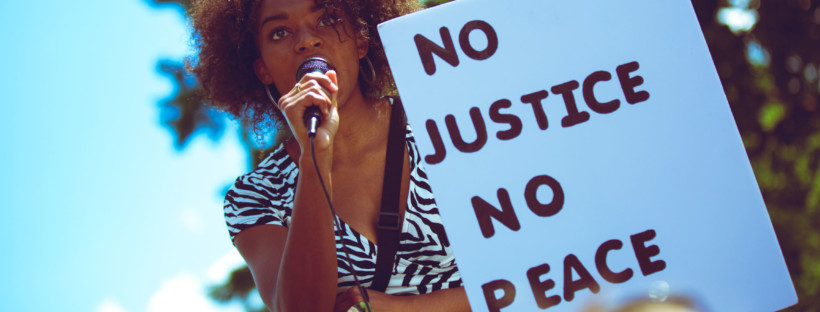“Whatever Affects One Directly, Affects All Indirectly.”

It was from the isolation of a jail cell in Birmingham, Alabama, that Dr. Martin Luther King, Jr. wrote of the “interrelatedness of all communities and states.” On the surface a counter notion, it appears that being apart actually reinforces the “inescapable network of mutuality” that ties us “in a single garment of destiny. Whatever affects one directly, affects all indirectly.” Together is the only way.
It is in Dr. King’s spirit that NCGS joins with others in condemning in no uncertain terms the racist violence that has continued to lead to profound injustices, including most horrendously in the needless loss of life for African Americans. In this time and always, we stand in solidarity with our Black and Brown colleagues, students, parents, and alumnae.
The killing of George Floyd in Minneapolis, Minnesota, most recently, but also Breonna Taylor, Ahmaud Arbery, Sean Reed, Tony McDade, and many others adds to our nation’s most shameful history, commencing with slavery and persisting for centuries. Off-camera, but no less tragic, the consequences of COVID-19 in the United States have impacted families of color at a starkly disproportionate rate. The pandemic has laid bare for all to see the injustices and inequities of our country and our world. These separate tragedies happening at the same time add layers of pain and loss. When viewed together, they clearly speak to the need for meaningful and long-lasting change.
Make no mistake, girls’ schools exist to advance humanity. Among the NCGS principles are Community & Collaboration: engaging the power of many voices to strengthen our schools, communities, and world; and Leadership & Integrity: inspiring the next generation to lead with courage, competence, and empathy. This moment reminds us why we need to do more than profess those values. We need to live them.
In the past months, we have wondered about the unique way that our children are being socialized amidst distancing. At an NCGS Educating Girls Symposium two years ago, Dr. Beverly Daniel Tatum, President Emerita of Spelman College in Atlanta, Georgia, and author of the groundbreaking “Why Are All the Black Kids Sitting Together in the Cafeteria?” and Other Conversations About Race, said “It is the nature of the socialization process: we tend to repeat what we learn.” This reality, as much as any, can impede progress.
Adults, too often, take false comfort in our own understanding regardless of how limited it might be. The educators at girls’ schools—especially those of us who, like me, identify as white—would do well in this moment to embrace our need to learn so that we can more fully lead and more fully love. As Dr. Tatum said, “a little bit of learning only leads to discomfort and pain.” We have to move and work through the discomfort and pain to achieve greater learning, connection, and positive change.
Today, our nation is in pain. The losses are too great. The inequities are too apparent. In this sad moment, let’s use our commitment to meaningful relationships as a source for true learning and from there, a more promising tomorrow.
Paul A. Burke, President | NCGS Board of Trustees and Head of School | The Nightingale-Bamford School (New York, New York)
View our Social Justice, Anti-Racism, & Race Relations Toolkit, a curated list of relevant reading, viewing, and experts to help educators fight racism and promote social justice and samples of letters condemning systemic racism drafted by girls’ schools to their communities.